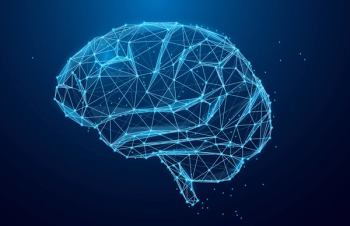
From the Pages of Psychiatric Times: August 2023
The experts weighed in on a wide variety of psychiatric issues for the August 2023 issue of Psychiatric Times.
In the August issue of Psychiatric Times®, we worked with experts from multiple psychiatric areas to bring you thoughtful articles about a wide variety of psychiatric topics, from an update on the ongoing ADHD medication shortages to a look at the neurological and neuropsychiatric symptoms of long COVID. Here are some highlights from the issue.
The Rx Crisis: The Impact of Ongoing ADHD Medication Shortages
Class is now in session, but young patients with attention-deficit/hyperactivity disorder (ADHD) might not be ready to face the classroom. Thousands—if not millions—of them may not have their medication.
The US Food and Drug Administration (FDA) originally announced a shortage of immediate- release formulation of amphetamine mixed salts (Adderall) on October 12, 2022. According to the National Community Pharmacists Association, 97% of independent pharmacy owners reported shortages of Adderall in early 2023. Other generic amphetamine mixed salts are predicted to be in shortage until the end of August 2023, September 2023, and December 2023.
Persistent Neurocognitive and Neuropsychiatric Symptoms Post-COVID
Although COVID-19 is primarily a respiratory virus, it also affects other organs and systems in the body, including the nervous system. The mechanisms of injury to the brain and nervous system include chronic inflammation, changes in the integrity of the blood-brain barrier, hypoxia, and coagulopathies resulting in the formation of blood clots.
Long COVID and other terms, such as long haulers or post-COVID syndrome, have been used to describe symptoms persisting beyond 12 weeks that cannot be explained by another condition. Some individuals with long COVID report ongoing or continuous symptoms experienced during initial infection, whereas others report the onset of new symptoms not experienced during initial infection, or continuous remitting and relapsing of symptoms.
Ketamine and Psychedelics: The Journey From Magical Mystery to Informed Consent
Since the 1960s, interest in the therapeutic benefits of psychedelic drugs has been periodically revived, with significant resources being invested in drug development and proof of efficacy. Sparking the current revival has been the drug ketamine, a dissociative anesthetic that also induces profound psychedelic experiences and hallucinations. There has been a groundswell of enthusiasm, interest, and investment in—and also skepticism of—the medical potential of psychedelics, as researchers have gathered data supporting the benefits of psychedelics for the treatment of emotional problems and psychiatric disorders.
Such favorable data sparked authorized clinical trials of psilocybin for treatment-resistant depression and 3,4-methylenedioxymethamphetamine (MDMA) for posttraumatic stress disorder, with the US FDA designating these molecules as breakthrough drugs.
Creativity Outlets: The Clinician’s Battery for Recharging
Psychiatry is a unique field for many reasons, but largely because it deals with gray space. Compared with other fields, our diagnoses rely more on subjective measures. We cannot diagnose schizophrenia with a blood test or obsessive-compulsive disorder by imaging. Numbers can only tell us so much in psychiatry. On the other hand, that ambiguity naturally lends itself to a story, and creativity is all about telling a story.
In psychiatry, the diagnosis is always tied to the human element. It may be simple to be cut and dry (clinical) when addressing someone’s high blood pressure, but it is different when a patient tells you their darkest secrets and greatest shames that are tied to their disorder. Mental illness colors an individual’s entire life. Again, numbers don’t come close to encapsulating an individual’s life, but stories can and do.
See the full August issue of Psychiatric Times
Do you have a comment on any of these or other articles? Have a good idea for an article and want to write? Interested in sharing your perspectives? Write to us at PTeditor@mmhgroup.com.
Newsletter
Receive trusted psychiatric news, expert analysis, and clinical insights — subscribe today to support your practice and your patients.






